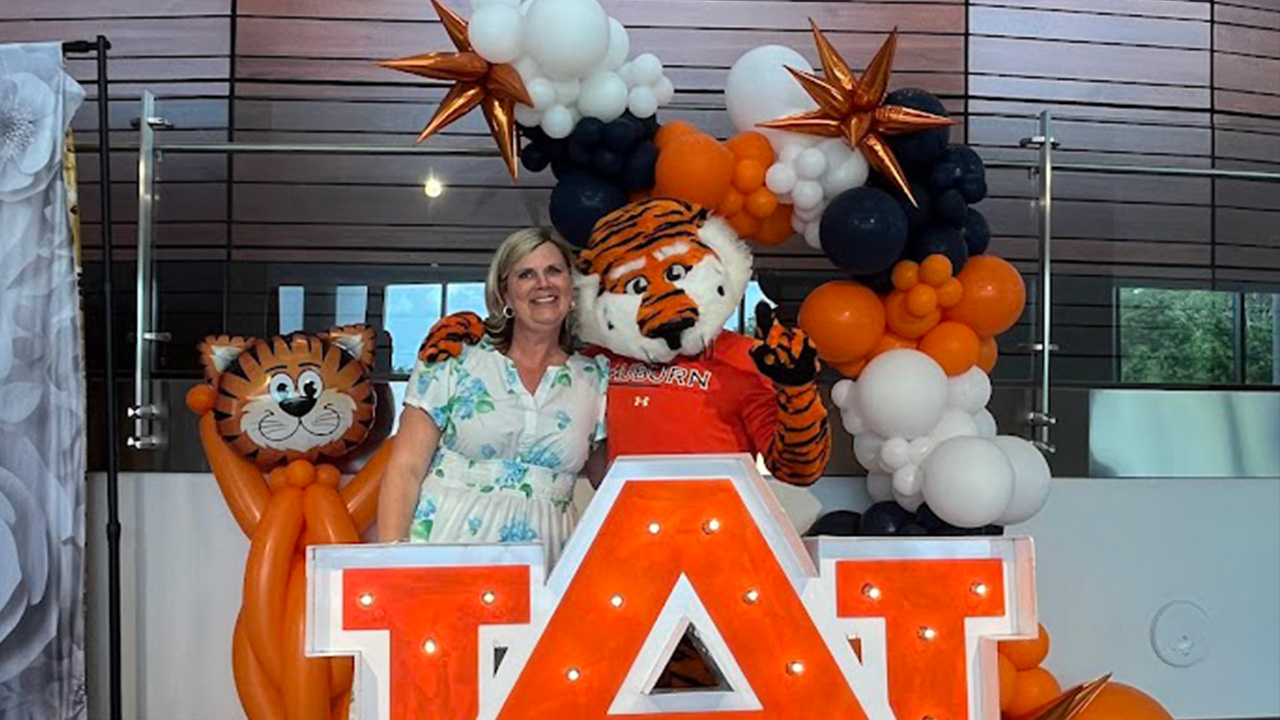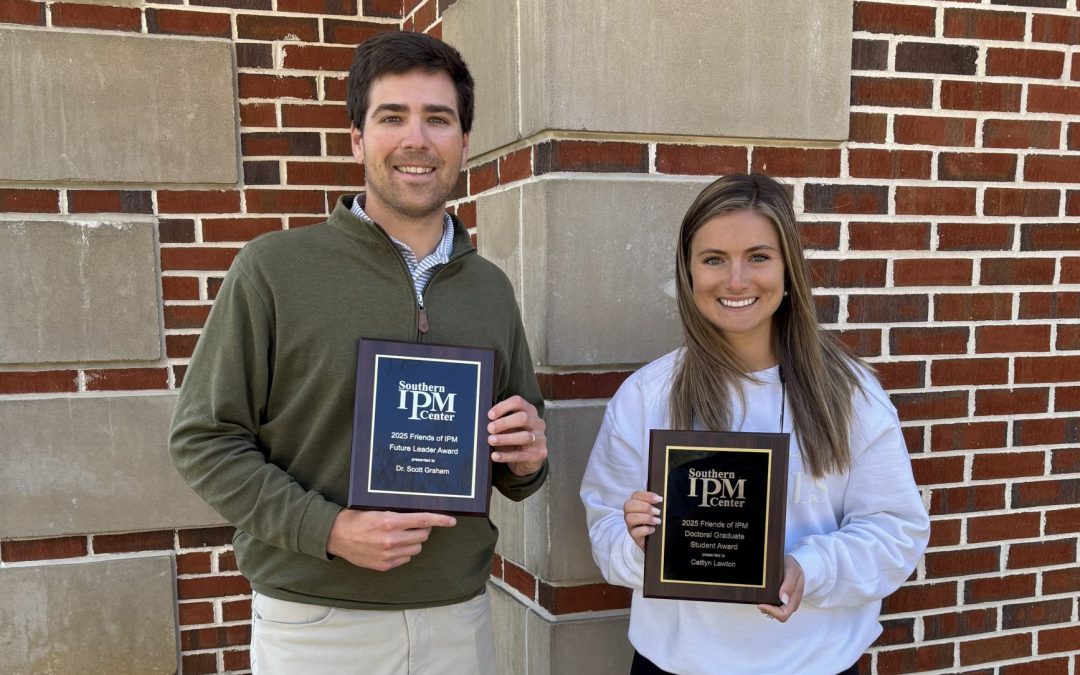By Rachel Priest
“I’ve always joked that Aubie is the reason I work here,” said Kaylen Anderson, laughing. “I love Aubie, and I have tons of photos of us.”
An Auburn University employee for six years — with the majority of those years spent as an administrator for the Harrison College of Pharmacy (HCOP) — Anderson has had many opportunities to pose with the famed mascot, most recently during the 2024 Employee Recognition Program, where she was recognized as one of four Employees of the Year. Held on May 7 at the Gogue Performing Arts Center, the event honored over 500 employees and celebrated their various achievements, such as service milestones, graduations from Auburn and completion of training programs.
Nominated by Gilliland Professor and acting Associate Dean of Research C. Randall Clark for her exemplary work as the administrator for the Department of Drug Discovery and Development in HCOP, Anderson said being honored as Employee of the Year meant “everything” to her.
“They start reading the letters, and I’m like, ‘I think that’s my letter,’ and already my lip was starting to quiver. By the time they called my name, I was a hot mess. It was ridiculous, I was bawling, but it was such a happy day,” Anderson said. “I was on Cloud Nine.”
In his nomination, Clark wrote that Anderson “sees the small things that need doing and takes care of them often before others recognize the problem. She is a role model for excellent customer service, always creating a positive atmosphere for success. She brings a friendly tone and a positive attitude to her team-oriented approach to routine daily activities.”
Anderson recently transitioned to working as the lead administrative assistant for Desmond Layne, head of the College of Agriculture’s Department of Horticulture. While there’s been a learning curve with the different types of tasks she’ll be doing, she said she’s excited to learn and try new things.
“It’s always so hard to start a new job and not know what you’re doing. And I’m older and changing jobs, but it’s a good thing,” Anderson said. “I’ve always been in that old mentality of you get in a job and you stay, and you don’t move around because it looks good to have that longevity and things like that.
“But now that’s not so much the mentality; it’s go learn new things, grow, move on if it means growth and that was kind of hard.”
While her job may have changed, many of the things that Anderson loves about Auburn have stayed the same — from the natural beauty of campus to the network of people she’s gotten to know on the Plains. Her time as a lead volunteer for commencement ceremonies, where she’s had the honor of carrying the gonfalon for HCOP and acting as the mace bearer, is also one of her biggest joys.
Receiving the Spirit of Excellence Award and being named Employee of the Year are memories that will “live on forever,” but a highlight of Anderson’s time at the university was seeing her oldest son, Carson, graduate with his bachelor’s degree from Auburn, and she’s excited to see him graduate with his master’s degree in August.
“It’s a dream to work for Auburn. I love Auburn,” Anderson said. “I’m forever grateful for the experience, the amazing people I’ve met and the friendships I’ve made.”




